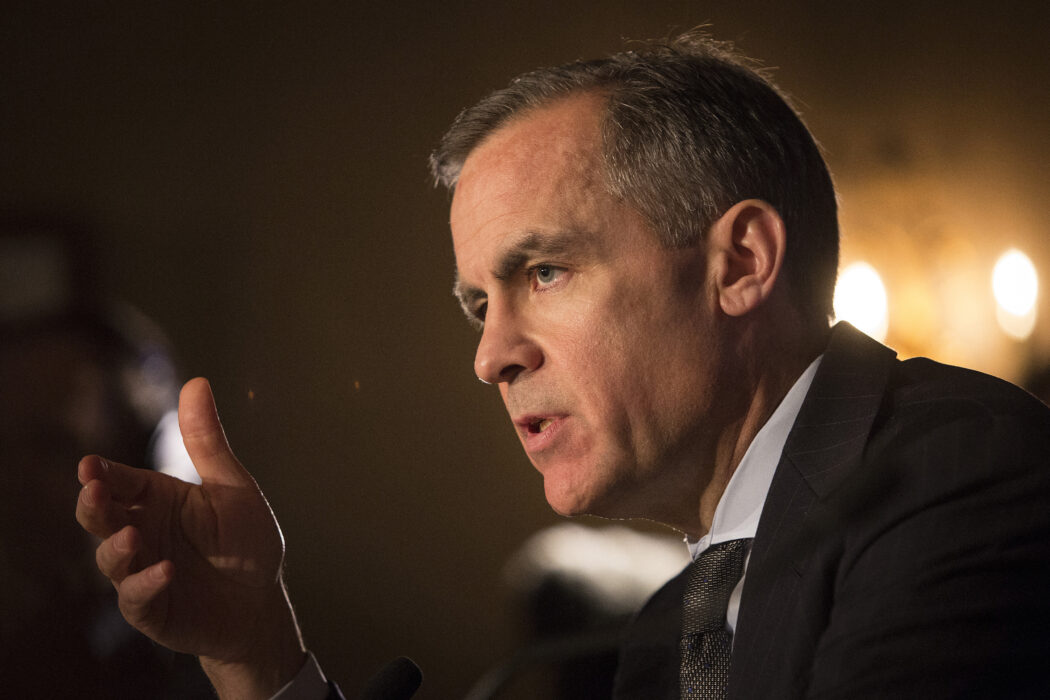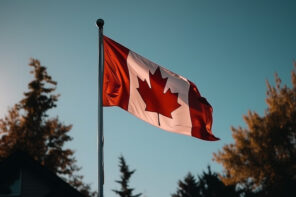A few weeks ago, I was driving down the I-89 interstate highway on a crisp Vermont morning when I realized that a State trooper had been tailing me for the last 20 kilometres. My speedometer confirmed that I was holding a steady speed of 65 miles per hour – the legal limit. At Exit 10 to Burlington, the Trooper overtook me and sped into the brilliant Vermont sunshine.
Initially, I dismissed the incident as an isolated occurrence of a bored police officer, however, the details soon hinted at a more disconcerting conclusion about Canadian and American relations. The rental car’s white Nova Scotia license plate stood out among the fern-green Vermont plates. I was a foreigner. Arguably, even worse, I was a Canadian foreigner. Just that morning, President Trump had announced 25% tariffs on Canadian imports–the steepest since the Smoot-Hawley Tariff Act during the Great Depression– and sent relations between Canada and the United States into a tailspin.
My encounter underlined how global political and economic decisions on a macro scale can drip down to the minutiae of everyday life. It also brought to mind Mark Carney, the new Prime Minister of Canada and leader of the Liberal Party. Carney replaced Prime Minister Tredeau, after nine years in power, with the hope that Carney would bring a revived vision to Canadian politics. The change in leadership marks a crucial junction in Canada’s future. In addition, Prime Minister Carney has just announced a snap election on April 28th. With this, Carney has already clawed back a lagging party. The party lagged 16.9 percentage points behind Conservative Pierre Poievre on February 25th and now leads the Conservatives by three points according to one poll by Leger.
On the topic of US and Canada trade relations, Prime Minister Carney has been a long time opponent of protectionist policies, tariffs, that threaten the delicate balance of international trade and can ripple down to everyday lives. Carney, in his career, has embraced the global context, his term as Governor of the Bank of England or United Nations special envoy for climate action and finance. He is hailed as cross-disciplinary and has been trusted by both ends of the political spectrum, as seen through his promotion to Governor of the Bank of Canada by Conservative Prime Minister Stephen Harper in 2008.
For many, he embodies hope and champions the vision of “an even better Canada.” In an interview with The Bull & Bear, President of the McGill Liberals Quinn Porter said, “His merit is pretty clear, not just because of his degree from Harvard or PhD from Oxford, but also the fact that he has a plan for sustainable economic growth.” Porter went on to emphasize Carney’s appeal as an “outsider,” noting how “he hasn’t been in the cabinet for the last nine years” setting him apart from his Tory rival Pierre Pollievre and Liberal competitor Chrystia Freeland.
When asked whether Carney has what it takes to challenge President Donald Trump, a key concern for many McGill students, Porter was confident. He said, “Yes, he absolutely can stand up to Trump” pointing to Carney’s “support for Canadian industry and trade” as a key strategy. With Trump’s tariffs already threatening Canadian steel and aluminium sectors, the economic stakes are high for millions of Canadians, including McGill students.
Other McGill students, including U2 engineering student Milo Emmerson, like how “He’s not a career politician” in comparison to Pierre Polievre “who’s never lived on anything but the taxpayers’ dollars.” Carney was born in Fort Smith, Northwestern Territories, and raised in Alberta–the son of a High school principal and a schoolteacher, something which he mentions “allows him to have the values that you share, including “hard work, community, tolerance [and] solidarity.”
At a Young Liberals for Carney gathering at McKibbins on Wednesday evening, there was anticipation in the air from many of the McGill students in attendance. One McGill student who wishes to remain anonymous told the Bull and Bear how “he [Carney] is just a sensible mediator” alluding to Carney’s cross-disciplinary political psyche. Minister of Public Services and Procurement of Canada Jean Yves-Duclos, who was in attendance, implied Carney’s economic credentials may have garnered him support, at another time mentioning how both he and Carney are “economists not politicians,”something which may assure many Canadians and students who are concerned about their livelihoods.
nAs the political landscape shifts McGill students may look towards Carney as a figure who is grounded in economic resilience, environmentally conscious, and a unifying force in Canada to guide them through this uncertain time. Though he has been described in the past as a “tough man to pin down,” this may be exactly what Canada and McGill need. For Carney “[leadership is] about delivering results, not grandstanding,”a message which has already created an unusual coalition of McGill students, Quebecois ministers, and “outsiders” to stand with him.








